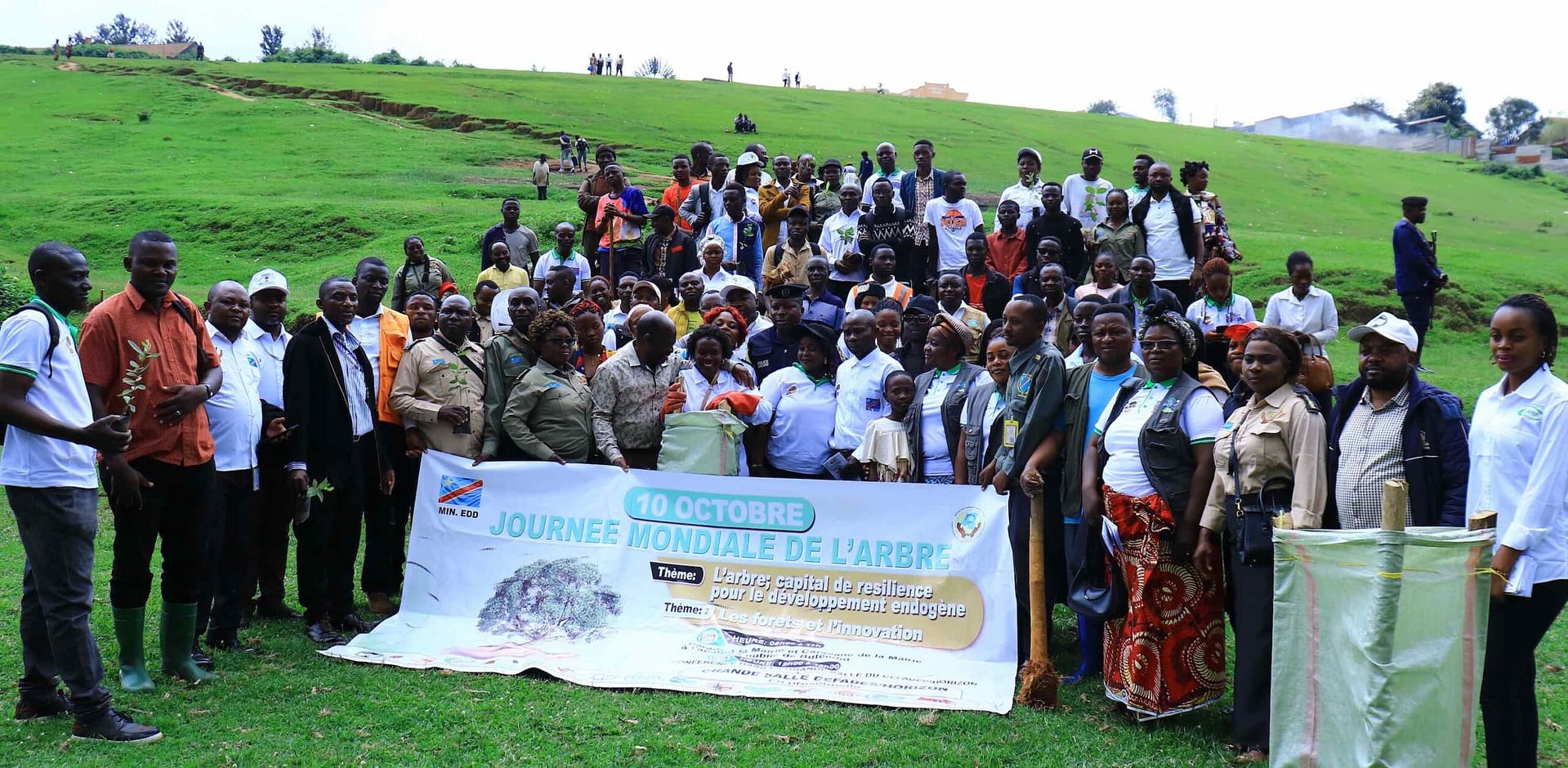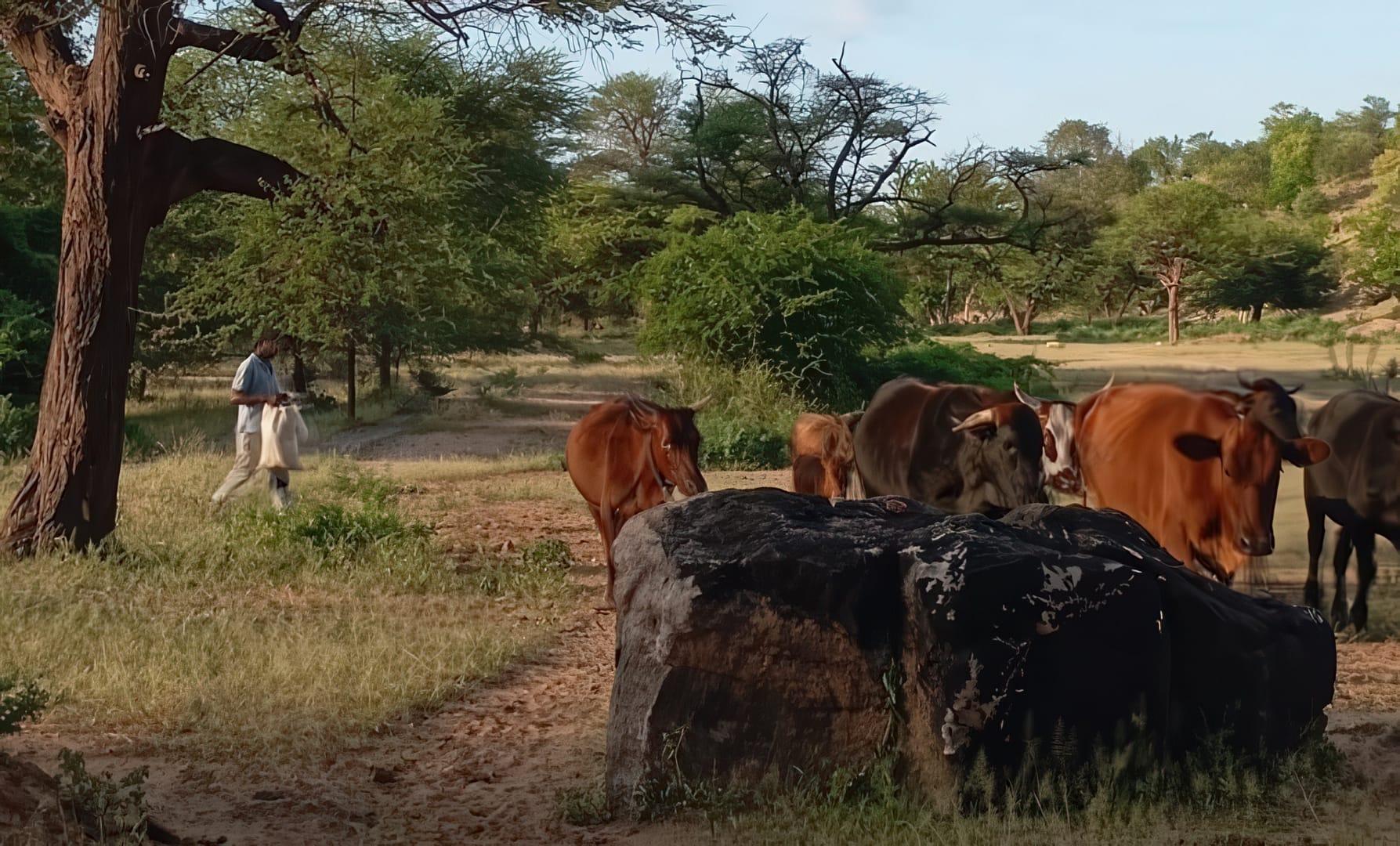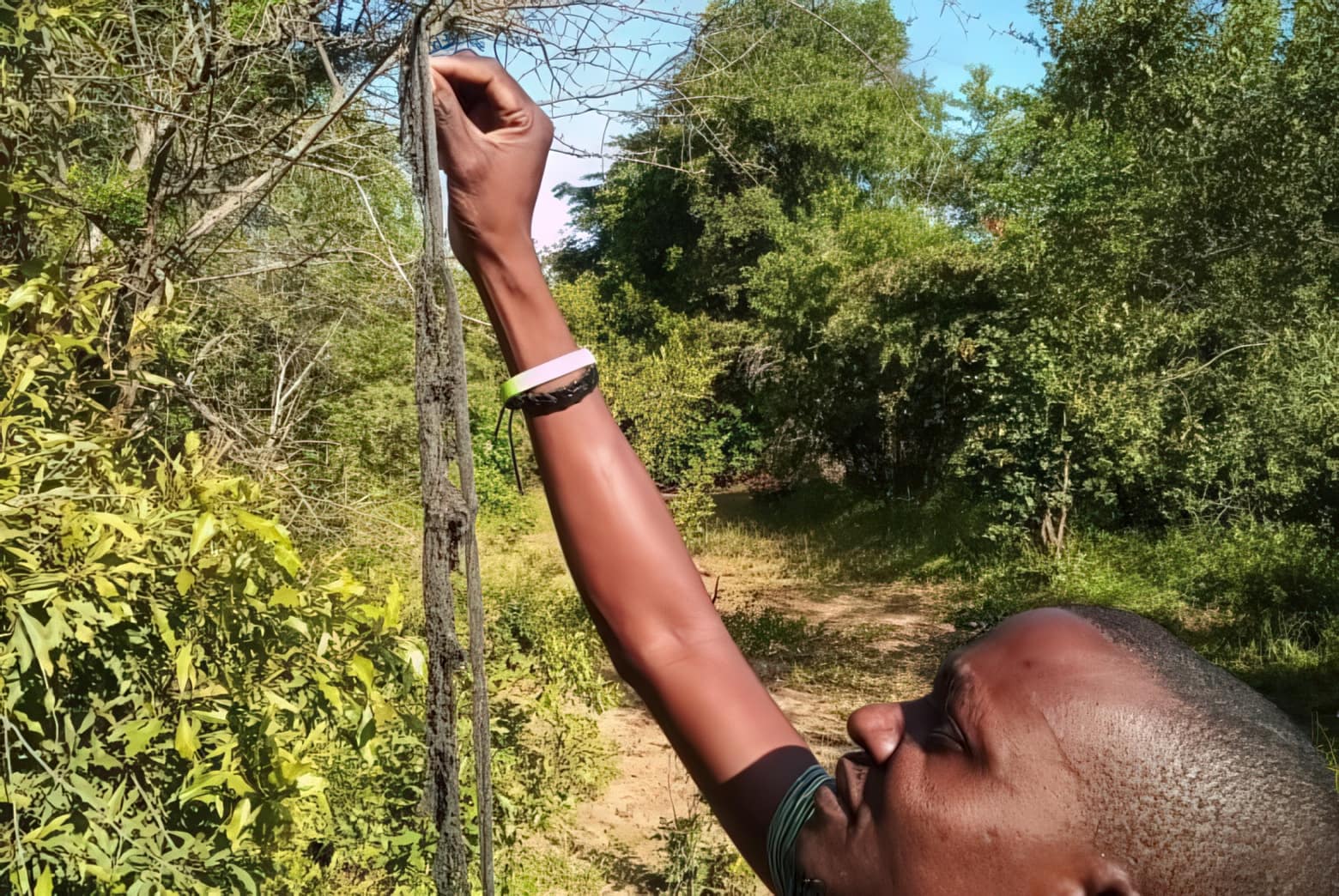
Mobilising the youth and planting trees in the Democratic Republic of Congo
The Academia Group of the Democratic Republic of Congo (DRC) organised two major events during the second half of 2024 to raise environmental awareness. The first activity was organised around International Youth Day on the 12th of August, which was used to remind young people that the future of humanity rests on their shoulders. The second activity was dedicated to National Tree Day on the 10th of October, which was designed to highlight the role of trees and their relationship with all ecosystems, and to draw attention to the urgent need for action on climate change and the need for sustainable development in our country.
Messages for the youth
The Youth Day event, held in the Butembo town hall, attracted young people from eight organisations, including the Urban Youth Council, Catholic denominational youth, young people from movements of the Church of Christ in Congo (ECC) and the Youth Resource Centre (CRJ).
The theme of this conference was “Youth skills for peace and development”, focusing on the role of young people in building a peaceful society and putting an end to societal ills such as gender-based violence, alcohol abuse and armed banditry. Participants were able to pose questions and join an open debate around these critical concerns in DRC.
Planting trees and creating awareness
The tree planting day was attended by 350 people, including representatives of 11 civil society organisations, 2 academic institutions, 1 research centre and 3 microfinance companies. Activities began at the town hall with the official opening of the event by the mayor, who planted two fruit trees. Participants then rode through town in a caravan of vehicles, accompanied by a brass band, aimed at raising mass awareness in the city centre of the importance of trees, especially fruit trees, in an urban environment. The caravan’s destination was an area damaged by erosion owned by the Butembo public abattoir, where the group planted over 250 young indigenous fruit trees.
Agronomist Albert Kasereka, who is responsible for restoring the Butembo public abattoir site, received the trees with gratitude, “Planting a tree today means protecting tomorrow, because it is vital to raise public awareness of the role of trees in restoring degraded areas and restoring habitats for tree species, not forgetting their role in the water cycle“.

Official launch of the tree-planting campaign in the town of Butembo by the Mayor and Senior Police Commissioner.
After the tree-planting activity, the group returned to the agricultural and aquaculture research centre (CEFADES) at the Catholic University of the Graben for a conference. Five speakers gave presentations at the conference on four tree-related topics.
The first speaker, from the Official University of Ruwenzori, presented a paper entitled “Forests and innovation: new solutions for a better, sustainable and regenerative future”. In his presentation, the speaker showed that innovation in forestry encompasses a wide range of practices, from sustainable logging techniques and reforestation efforts to advanced technologies such as remote sensing to monitor forest health.
These innovations not only help to protect forest ecosystems, but also contribute to sustainable development, biodiversity conservation, climate change mitigation and the well-being of communities that depend on forests for their livelihoods.
The second speaker presented a theme entitled “The role of trees in a holistic approach to climate change“. This theme covered four main points: 1) the role of trees in climate regulation, 2) the impact of climate change on trees, 3) remote sensing monitoring of vegetation cover and, 4) adaptation and mitigation strategies.
Two speakers, one from the Catholic University of the Graben, gave a joint presentation on the sustainable management of timber resources. The last talk by a delegate from the Christian humanitarian organisation Medair was on the fight against viral diseases, particularly Monkey Pox, using environmentally-friendly methods.
Lucie Matangi, a student in Rural Development Techniques, had this to say: “I’m delighted to have taken part in this activity, which increased by knowledge of the role of trees and put me in contact with youth organisations and other community leaders working in the environmental sector.”
Future ideas for the Academia DRC Group
The Academia DRC Group is looking to expand the impact and scale of our services and events in future. In the short term, we aim to train local people in sustainable farming practices, beekeeping and environmental conservation through vocational training, especially for young people. In the medium term, we aim to develop partnerships with research institutions, NGO networks and international organisations to support the implementation of large-scale projects. In the long term, we aspire to become a training centre for sustainable development with activities that reach other African countries and the rest of the world.



